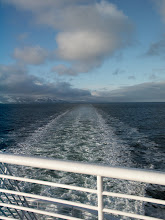Home is a Hurricane
Growing up on the Gulf Coast, hurricanes are a part of life. Some places have earthquakes, tornadoes, or blizzards. Children in Houston don’t make snow angels, or learn to run for inner walls when the earth begins to move. They learn to track the direction and precise location of every circular cloud, to watch its evolution from tropical depression, to tropical storm, to hurricane. They watch, growing excitedly anxious, as each storm draws closer; relieved, and a little disappointed, as each one veers away at the last moment. As they grow older, become homeowners, it is already instilled in them to have a hurricane plan. Most will have boards cut for their windows years before they will actually need them.
Houston has not had a major hurricane in 25 years, since Alicia made landfall in August of 1983. I don’t remember Alicia, was only three months old. I can’t relate to the destruction it wrought. I do, however, remember Katrina. I remember the panic when the levees broke, the water level rising, the people fleeing to the Superdome, the one place they thought was safe. I remember the buses full of people arriving at Reliant Park in downtown Houston for a week straight. The sight of 4,000 people sleeping in one cavernous room is not something you take lightly. I also remember Rita. I, along with two million other Houstonians, fled Rita as if that storm were the Devil himself. We all remembered Katrina. No one wanted a repeat. I remember the 22 people that died on the road, baking in 100+ temperatures, unable to get any relief from the heat as cars stalled, shutting off the only air conditioning for miles. I remember when the storm turned, sparing the city, but scarring those of us who fled.
Helpless frustration overwhelms me. I constantly text message friends back home for updates. I despise newsprint, yet have bought three papers in two days for want of information. I feel utterly cut off, unable to do anything for those in need.
I was not helpless during Katrina. I volunteered 46 hours over 5 days during the two weeks that 15,000 people sought shelter at the Astrodome and Reliant Park. I helped them, and in return, I felt useful, powerful, as if I personally had the ability to change the world, to relieve some of their burden. One woman called me an angel, after I helped her find the daughter who had been separated in New Orleans, a week past. Another man stated that this situation was worse than the Superdome, after watching the officials in charge of their care engage in a screaming argument over the new curfew. I assured him, while unpleasant and slightly uninspiring, having a bed, three meals a day, and not being entirely surrounded by alligator-infested water couldn’t possibly be worse than the Superdome.
One week later, as Rita loomed on the horizon, I became an evacuee myself. I packed what I could, and fled to Killeen, to Fort Hood, where my best friend was stationed. She had only moved there a week prior. I remember the two of us sitting in the base Visitor Center, watching CNN for hours. I remember hearing of friends and family trapped in 100 mile-long traffic, taking 18 hours to go 45 miles. My family was lucky. It only took them nine and a half hours to reach Dallas, a trip which normally takes a leisurely four. I remember the feeling of relief when Rita veered north, the sorrow when New Orleans fell victim once again, and the vow to ride out the next one, because evacuating was far worse.
It is devastating to watch, from so far away, as your friends and your family go through hell, unable even to offer them a shoulder to lean on. It is gut-wrenching to watch the places you’ve grown up going to blown down in a matter of seconds. There is nothing I can do.
I moved here, to Alaska, for a change of pace, for something different, for a little cold weather and beautiful scenery. But as I watch the destruction of my hometown unfold on CNN, I question my choice. Why did I have to go so far? If I were closer, I could go home, on weekends if necessary, to help with rebuilding. It will take at least a year, possibly more, to fully recover from Ike. New Orleans still has not fully recovered.
It drives home just how isolated I really am, this far north in the Last Frontier. I am not Sarah Palin. I do not have a private jet to take me home when I choose to go. I, like most of my fellow Americans, must rely on commercial airliners for my immediate travel needs, which is both costly and inefficient. I will not be home for Thanksgiving or Christmas for the first time. I won’t see my Mother on her birthday; I have already missed my brother’s and my father’s. It is a new sense of loss, of growing up, when you move somewhere unknown.
Call it weakness, call it childish, call it what you will. I belong in the South, in the heat and humidity, with my family. I belong in Texas, helping restore Houston to its flat, ugly grandeur. I have learned my lesson. I’m going home.


